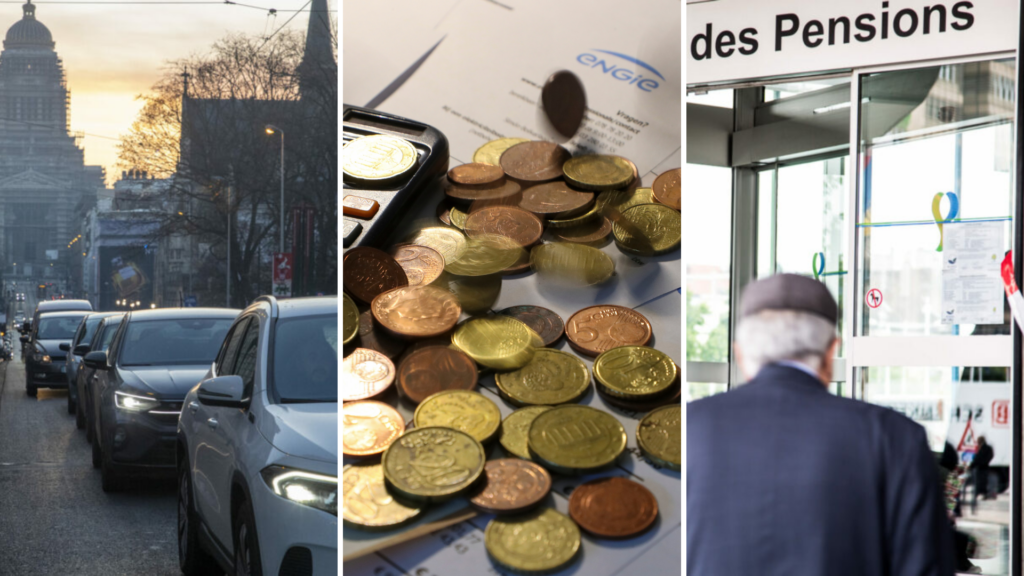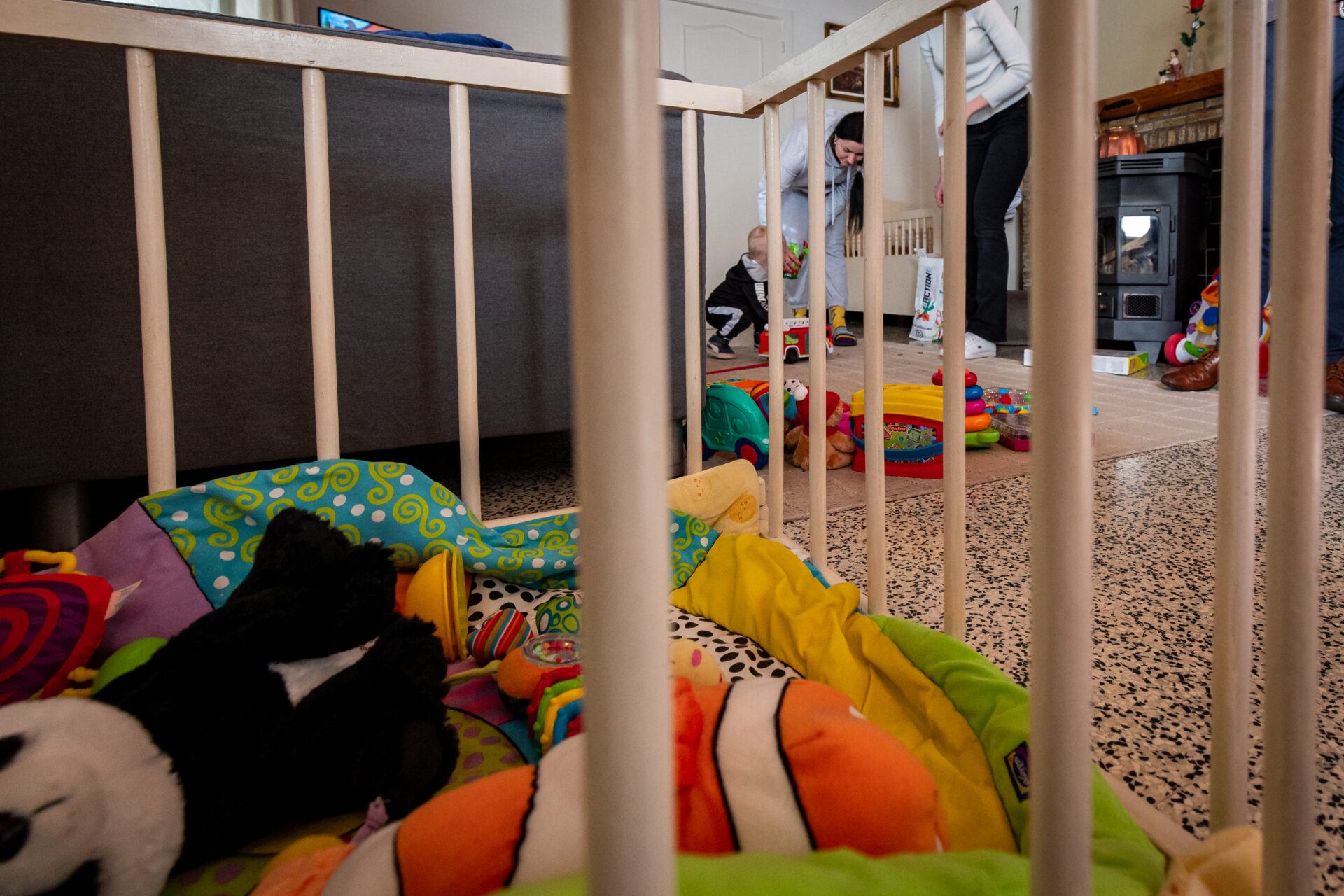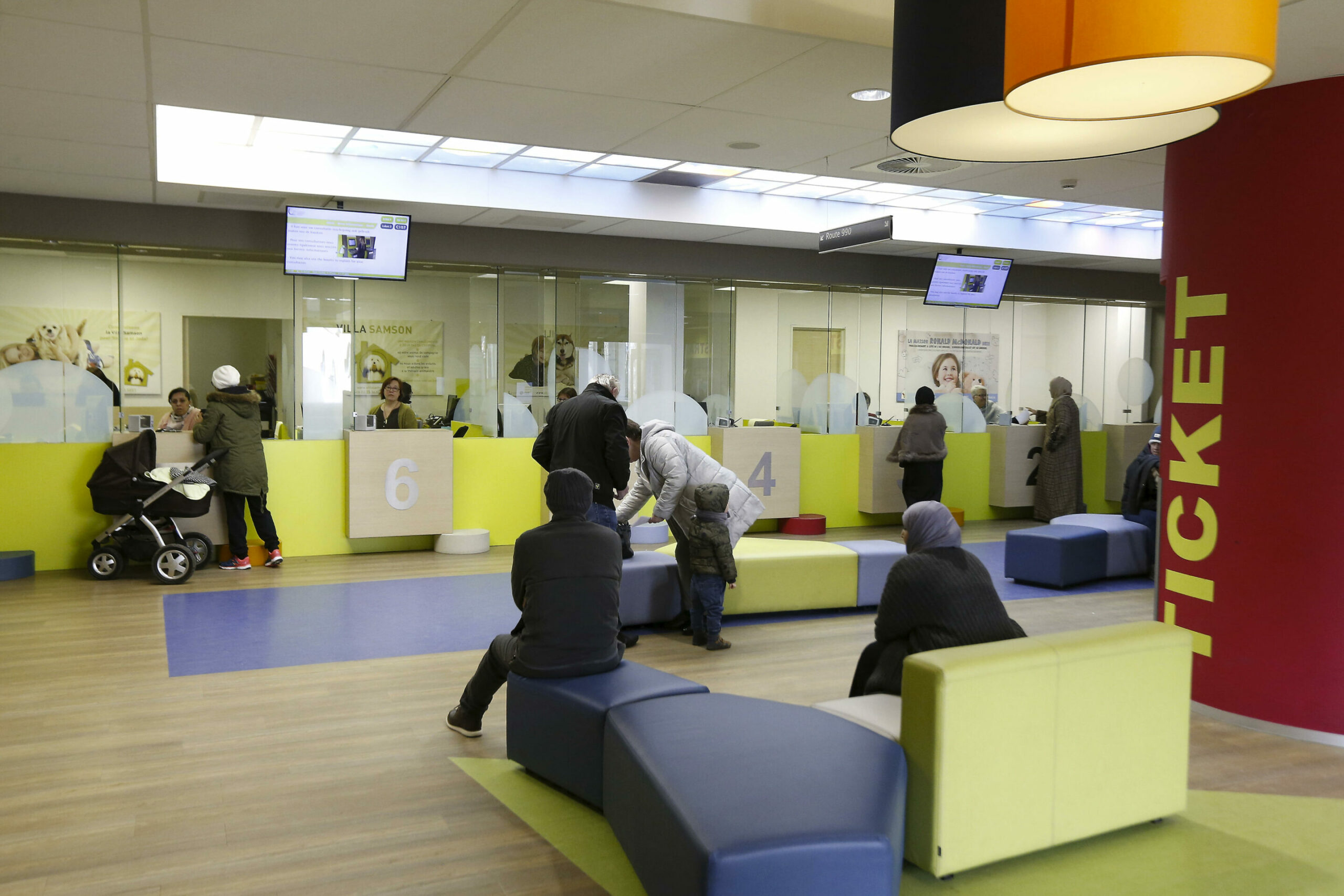Learn about what changes in Belgium this year, and how it could affect you;
✔ Over 1 million employees to receive automatic wage increase
✔ Changes to how health insurance claims need to be processed
✔ Foreign drivers can now be fined over €1,000 if caught under influence
✔ And much more
Pensions, energy costs and wage increase: What changes in Belgium on 1 January?

In Belgium, the start of a new month sees a range of changes in laws and regulations. To mark the start of the new year, a substantial amount of adjustments are coming into force. From an overhaul of the pension system and more expensive energy bills to bans on cigarettes and rising wages, find out what is changing on 1 January 2025.
Employment
More than one million workers will see their wages rise due to automatic wage indexation. This January indexation of almost 3.6% will benefit employees in the five largest joint committees.
Meanwhile, the Belgian pension system will undergo some major changes in 2025. The statutory retirement age (the earliest age at which people can retire) will rise from 65 to 66. All workers born on or after 1 January 1960 will have to work an extra year before retiring. Those who turn 65 before New Year's Eve will remain under the old system. Some people can retire early under certain conditions.
Another key change concerns the guaranteed minimum pension, imposing an additional condition of eligibility. Finally, the pension bonus to encourage people who want to retire early to continue working will return. Find all the changes here.
Health insurance companies (mutualité or ziekenfonds) will have to pay parental leave allowances on a monthly basis. Parents are entitled to 20 days' parental leave, to be taken within four months of their child's birth. This leave, which is not compulsory, can be spread over a period of four months from the birth.

Credit: Belga/ Kurt Desplenter
The first three days of leave are paid for by the employer. In the following 17 days, compensation of up to 82% of the normal gross salary may be granted based on information provided by the employer. This was only paid at the end of the maternity leave, which in some cases caused a financial barrier for those who wished to benefit from the benefit.
Employees who adopt a child are now entitled to six consecutive weeks of adoption leave. A credit will be added to that, increasing to four weeks, which can be divided among the parents.
The number of hours students can work will be reduced to 475 hours per year. Social security contributions are lower for this quota of hours. If the student works more than the quota for the calendar year, the additional hours are subject to normal social security contributions. In 2023 and 2024, the quota was raised to 600 hours a year to deal with the consequences of the Covid-19 pandemic. These hours can be distributed freely, with one or more different employers.
Refugee Ukrainians and their family members who want to stay in Belgium longer can have their A-cards (temporary residence documents) renewed for one year. They can do so at the municipality from 4 January. Their A-cards currently run until 4 March 2025.
Finance
Electricity and gas distribution tariffs in Brussels will rise to around €50 per year. The new tariffs are valid for five years. Distribution accounts for about 33% of the electricity bill and 20% of the gas bill.
The distribution bill for an average Brussels household consuming 2,104 kWh of electricity per year will rise by €26.58 in 2025 (+11.6%). The transmission tariffs will also increase by 60% or €17.7 per year. In the case of gas, a household consuming 12,000 kWh per year will face a €23 increase in distribution charges next year. In total, the average customer will see their bills rise by around €67 or €5.60 per month.
Distribution tariffs for electricity and gas in Wallonia will also rise by an average of 14% compared with 2024. At medium voltage, the average electricity distribution costs for a typical customer in Wallonia will rise by 31%.
Network tariffs in Flanders will rise by a third, or an extra €120 a year. Net rates for natural gas will also rise, by 6% €15 extra per year.
Foreign drivers caught under the influence of alcohol or drugs on Belgian roads will be required to pay a €1,260 on-the-spot fine. The aim is to ensure people who are not residents of Belgium don't 'escape’ penalties. For those unable or unwilling to pay, the vehicle will be blocked by the police for 96 hours. Find more information here.
Another change will only affect drivers in Leuven. The Flemish city's public prosecutor will crack down on the use of mobile phones behind the wheel. Drivers caught will see their driving licences immediately revoked for a period of 15 days and be fined afterwards. Professional drivers will also have to appear before a police court.

A Ryanair plane and Brussels Airlines plane at Brussels Airport. Credit: Belga / Nicolas Maeterlinck
Airline group Lufthansa and all its subsidiaries for all flights departing from Europe will introduce a surcharge for environmental costs. Brussels Airlines will apply a surcharge of between €1 and €36 depending on the route and class of travel. The surcharge will apply to all tickets issued from 26 June with a departure on or after 1 January 2025. The company aims to cover some of the rising costs linked to environmental regulatory requirements.
Purchasers of a single-family home in Wallonia (to be used as their principal residence) will pay a 3% registration duty, compared with the current 12.5%. They must move into the home within three years if it is already built, and within five years in the case of a building plot. If the buyers leave before the end of this period, they will have to pay the difference between the ordinary and the reduced rate.
In Flanders, the registration duty will be reduced from 3% to 2% for purchases for which the notarial deed is signed on or after this date.
The price of service voucher fares will increase. In Flanders, it will rise by €1 from €9 to €10 per voucher, and the tax deductibility (€1.8 per cheque) will disappear.
In Wallonia, the cost of vouchers was already upped to €10 at the start of 2024. From 1 January 2025, service vouchers will cost €10.20 (for the first 175 vouchers purchased), €11.20 (between 176 and 400 vouchers) and €12.20 (between 401 and 500 vouchers). In Brussels, the first 300 service vouchers will cost €10.20 each. The price will rise to €12.40 after the 301st voucher is purchased. In Brussels and Wallonia, the 15% tax deduction will not change.
Health
People who have to buy more expensive alternative medication, because their usual medicine is out of stock, will receive financial compensation for this. This reimbursement, which will apply to reimbursed medicines considered essential, will be funded by a contribution from the pharma sector.
The recommendations for cervical cancer screening will also change. Women from the age of 30 are recommended a primary screening test for human papillomavirus (HPV) every five years instead of a cytological examination every three years. The latter examination is still recommended for those aged 25 to 29.
The sale of disposable e-cigarettes, popular among young people, will be banned in Belgium, making it the first EU Member State to do so. Retailers still have until 11 January to adapt to the new measure. It is now also illegal to smoke in playgrounds, sports grounds (including skate parks, sports fields, sports stadiums,...), amusement parks, zoos and petting zoos.
A total ban on alcohol advertising will come into force on TikTok and Snapchat as well as within a 150-metre radius of schools. Brands will also not be allowed to feature people under the age of 25 in alcohol advertisements.

All hospitals are now obliged to electronically record the identity of patients. Credit: Belga/ Nicolas Maeterlinck
Hospitals must electronically record the identity of patients (both in- and outpatient) for health services that they bill to health insurance funds. If hospital staff fail to do so, the insurers will be able to refuse the invoices. It is therefore pivotal to bring your identity card with you to the hospital.
Psychosocial support and/or medical help for transgender people will now be reimbursed in six centres. Until 31 December 2024, two centres signed an agreement for transgender care with the National Institute for Health and Disability Insurance: UZ Gent and CHU de Liège. Now, Hospital aan de stroom (ZAS) in Antwerp, Hôpital Erasme ULB (Brussels), Ziekenhuis Oost Limburg in Genk, and VITAZ in Sint-Niklaas have been added to the list.
Other changes
Installing smoke detectors will be obligatory in all homes in the Brussels Region. This obligation was already in place for rented accommodation. Find more information here.
All textile waste, whether in good or bad condition, has to be collected. Clothing, household linen, leather goods, and plush fabric scraps are all eligible for collection under a European directive on the selective collection of textiles. Until now, only textiles in good condition were collected by regular operators, such as ASBL Terre and Les Petits Rien; the rest were thrown into the white bags dedicated to residual waste.
